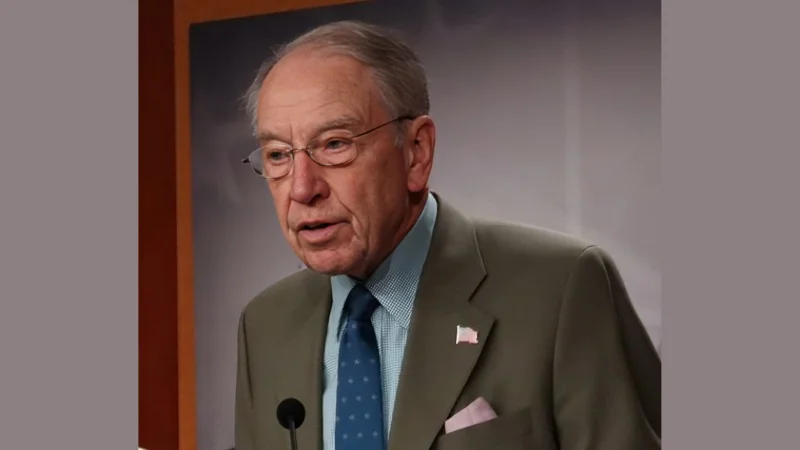Chuck Grassley, Chairman of the Senate Judiciary Committee | Facebook, Senate Judiciary Committee Republicans
Chuck Grassley, Chairman of the Senate Judiciary Committee | Facebook, Senate Judiciary Committee Republicans
The Senate Judiciary Committee convened on October 28, 2025, to address concerns about rising costs for seeds and fertilizers faced by American farmers. Senator Chuck Grassley of Iowa, chairman of the committee, opened the hearing titled “Pressure Cooker: Competition Issues in the Seed & Fertilizer Industries.”
Grassley noted that many farmers feel limited in their options when purchasing essential supplies. He emphasized that higher input costs for seed and fertilizer have become a significant burden for farmers who already operate with slim profit margins. According to Grassley, “America’s farmers are the most productive in the world. They take the risk, put in the work and feed the United States and much of the world. But they also operate on thin profit margins. If input costs go up or switching suppliers is too hard, that pinch is felt by every farmer, family and consumer in the world.”
Citing reports from the U.S. Department of Agriculture (USDA), Grassley pointed out that price indexes for these inputs were notably higher at the beginning of 2025 compared to 2021. He attributed part of this increase to inflation rates during President Biden’s administration.
The hearing aimed to explore factors contributing to these trends, such as energy market influences on nitrogen production, global supply disruptions, logistics issues, and increased market concentration among suppliers. The committee sought to identify practical steps to improve transparency and competition within these industries.
Grassley promoted his proposed Fertilizer Research Act as one possible solution. “One such step would be to pass my legislation, the Fertilizer Research Act. This bill would require the Department of Agriculture to do a comprehensive study on the fertilizer industry to shed light on the reasons farmers are paying so much for fertilizer,” he said.
He also addressed trade policy concerns regarding phosphate imports from Morocco: “This hearing is focused on competition issues. However, there is something that the Trump administration can do right now to help ease the burden for farmers: lowering the countervailing duties on phosphate from Morocco. In 2024, the Biden administration increased duties on Moroccan phosphate to 18 percent.” Grassley continued, “The Biden phosphate duties have only hurt farmers by boxing out access to this important market on an essential input with no substitute.” He called on a potential Trump administration to eliminate these duties.
Over recent decades, Grassley observed consolidation among seed and chemical companies has made it harder for farmers to switch brands due to integrated product offerings and data systems: “Because all those products and data systems are tied together, it’s hard for farmers to switch to a different brand — their data and recommendations are ‘locked in’ to one company’s system.”
On fertilizer markets specifically, he cited rapid price increases driven by global shocks but slow local price reductions due partly to restrictive contracts and dealer practices.
Grassley outlined four key areas needing reform: transparency in pricing; portability of farm data; fair dealing in contracts; and accountability when mergers fail consumers or producers.
“We want better yields, healthier soils and quality products. But we also want competition that’s fair, transparent and local competition that a farmer can actually expect when he or she sits down to make a purchase,” Grassley said.
He concluded by expressing appreciation for Senator Dick Durbin’s bipartisan cooperation: “I appreciate Senator Durbin’s partnership in setting a constructive, bipartisan tone today. We’ll hear from farmers, producers and industry experts.”
“My goal is simple: identify practical steps — legislative and regulatory — that respect innovation and property rights but restore real, on-the-ground competition,” Grassley stated.
“When farmers win fair choices at fair prices, rural communities win, consumers win and America’s food security wins,” he added.




 Alerts Sign-up
Alerts Sign-up